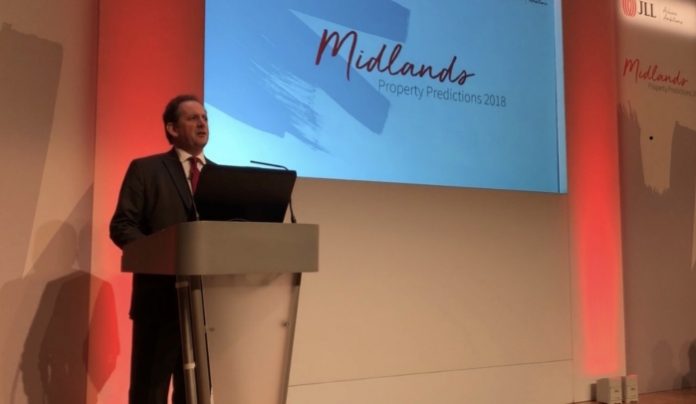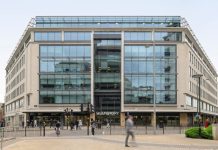Student Housing, Private Rented Sector (PRS) & Healthcare are to be some of the new investment drivers in 2018 says JLL at its annual property predictions event, as the Alternatives market gets set for a stellar year.
James Kingdom head of Alternatives research at JLL addressed a packed house of key investors in the Midlands’ region as he spoke about the dramatic rise of the Alternatives market.
“For investors, major technological and social changes combined with rapid urbanisation are bringing new opportunities. Transaction volumes in Alternatives rose from 10 per cent of the overall commercial property market in 2010 to 26 per cent in 2017, to make it the most successful year to date at £15.7 billion.
“In 2018 we’re expecting the Alternatives market to outperform mainstream commercial property as investor demand looks set to increase amid economic uncertainty and weaker prospects for commercial sectors.”
Data centres are one example of a growing asset class as technology changes the way we live and work. Demand is driven by business and personal devices, which rely on computing power and connectivity, now held within the cloud.
James added: “If the West Midlands is to be at the heart of the 4th Industrial Revolution, data centres will become even more important. Currently there are only nine in Birmingham, compared to approximately 150 in Greater London and to attract tech firms we need significantly more.
“Automated cars use up to 4000 GB of data per day. For major operators in the region such JLR to push forward into new markets, data centres will be required.”
IBM estimates that 90 per cent of all data today was created in the last two years. Most operators for efficiency and security purposes need data centres to be within 30-40 miles of its base.
Jon Neale head of research at JLL added that he was absolutely sure technology was changing the world and that the logistics of changing consumer habits would need to be addressed in the region.
“If you look at the rise of small goods vehicles since 2000, they have increased by 50 per cent, significantly more than cars, lorries and buses and the main reason is parcel deliveries from online shopping.
“This is causing real concern as pollution and congestion levels rise in the cities and so infrastructure will be a top priority, as there simply won’t be enough capacity to carry all these vehicles in line with predicted demand.
“Urban logistics is going to be a big topic going forward, with land required on the fringes of the city, giving opportunity for more struggling assets to be repurposed for parcel collection and electric charging points.”
Jon added: “Likewise the way we work is being impacted by technology and the related need to attract more mobile, skilled talent. Business models can be disrupted much quicker than before. Investing in businesses has become risker and all companies need to be ahead of the game in tapping into new ideas.
“Offices are no longer just places you go from 9 to 5 to do your routine job: they are increasingly seen as a service for staff and tool for employers. The rise of flexible working means that companies need to work harder to attract staff into the workplace, putting a new emphasis on design, services, collaboration and the user experience.
Ian Cornock concluded: “It’s clear technology and the need for data storage will increasingly pervade our lives at every level. What was once thought of as an alternative form of investment will become more mainstream.
“The changing demographics of an aging population also mean that sectors such as healthcare will be in demand and we expect investors looking at a much broader range of investments over the coming years.”





















